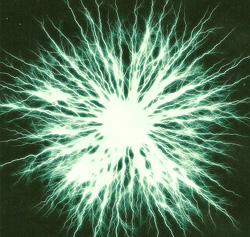
In addition to lightning, surges have a variety of causes.
Some are internal, some external, and some quite mundane.
Large loads like the motors used in elevators and air conditioners can cause voltage surges every time they start and stop.
When a power outage occurs, the rapid de-energization of electrical loads throughout the grid also generates substantial voltage surges.
In one documented case, a faulty light bulb socket in a refrigerator caused surges of as much as 5,000 volts whenever the refrigerator door was opened or closed.
APPROPRIATE SOLUTIONS
Surge energy is mitigated by using a surge diverter. As its name implies, this is a device that reacts to surge voltages over a certain threshold by diverting surge energy away from the power conductor to ground.
If the system is microprocessor based (such as an audio mixing console), this is undesirable because the diversion action will create a neutral to ground voltage that is likely to cause system upset.
If part of a larger, interconnected system, surge energy on ground is likely to circulate throughout the entire system on the grounding conductors. Surge protectors should never be installed at the end of a branch circuit for these reasons.
The most appropriate place for a surge diverter is at the service entrance of the building where it will divert surge energy directly to the building’s earth reference without causing a neutral to ground voltage or disruption to computer-based systems within the building.
At the point where the electronic system plugs into the branch circuit, a much higher level of protection is desirable. At this point, the goal is to eliminate both destruction and electronic rust and to do it without creating a neutral to ground voltage that will disrupt the system. The best way of accomplishing this is with a power protection solution that uses an isolation transformer.
Properly designed solutions can limit even catastrophic power disturbances to insignificant levels ensuring both the survivability and operability of the system.
Dennis Ver Mulm works with POWERVAR, based in Lake Forest, IL.
